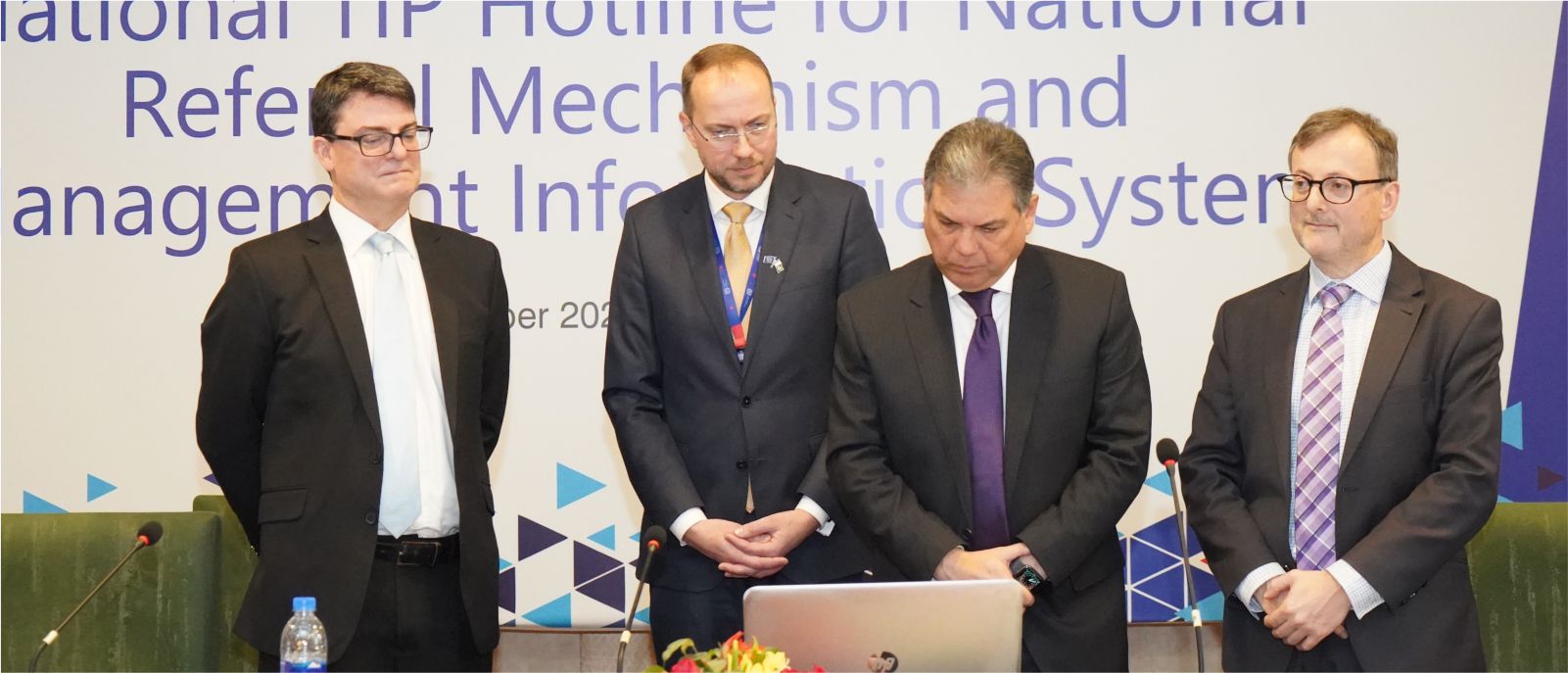
14 December 2023, Islamabad - UNODC, under the EU-funded PROTECT project implemented within the framework of GLO.ACT, supported a technical workshop following the launch of the Trafficking in Persons Management Information System (TIP MIS). This work and journey to the TIP MIS build on earlier efforts under GLO.ACT Asia and the Middle East. The journey began in 2021 when UNODC and the Federal Investigation Agency (FIA) collaborated on developing specialized data collection tools. These tools laid the foundation for the comprehensive database launched at the event, showcasing the effectiveness of collaborative efforts in leveraging technology to address the complexities of human trafficking.
At the launch, the FIA unveiled the Trafficking in Persons Management Information System, whose development was funded, supported, and piloted by the International Labour Organization (ILO) and Australia Aid. This initiative will be advanced by the establishment of Single Window Service (TIP SWS) Centres, aiming to enhance the registration, complaint handling, information sharing, and referral processes for victims of trafficking. These centres will utilize the TIP MIS developed by ILO to refer victims to various support facilities.
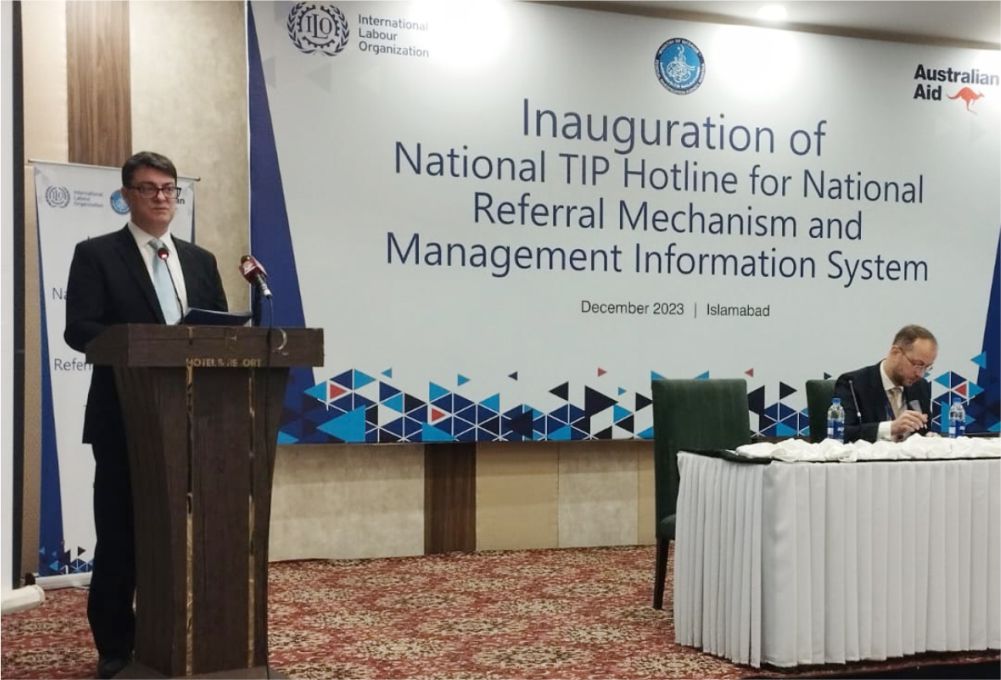
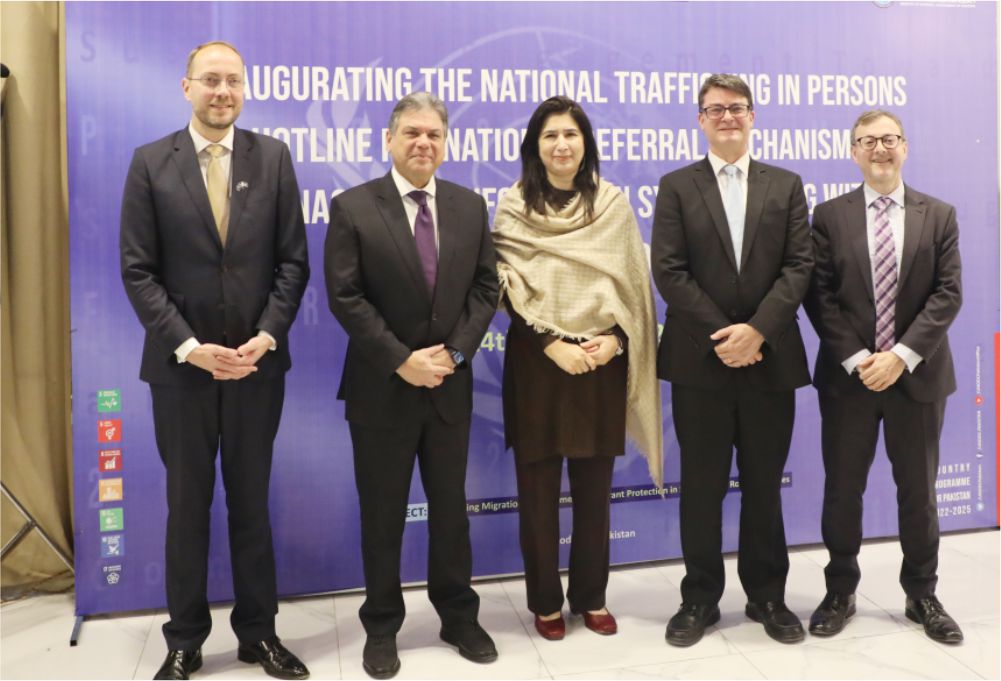
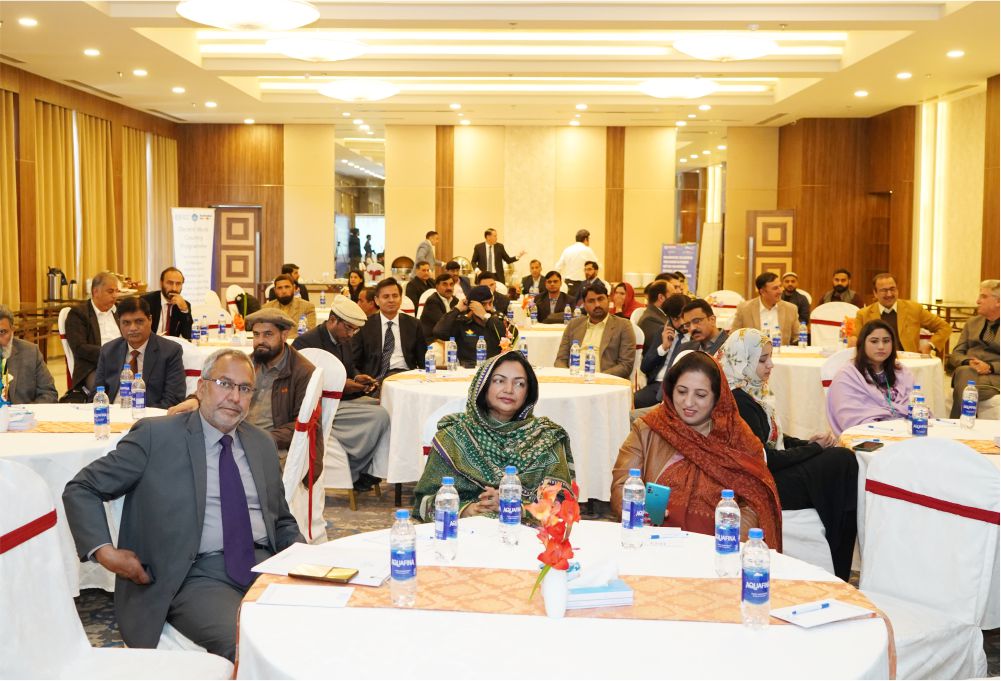
The TIP MIS will act as a central repository for comprehensive data on internal trafficking cases, victim identification, screening, referrals, and perpetrators. This information will empower law enforcement agencies by enabling them to track trends and patterns, improve case management, and enhance victim assistance. FIA, serving as the secretariat, emphasized the impact of the TIP MIS, expressing a commitment to understanding challenges better, responding efficiently, and contributing significantly to the eradication of human trafficking.
Addressing attendees, Dr. Jeremy Milsom, UNODC Representative, highlighted the impact of collaboration, emphasizing the reshaping of the narrative and setting the stage for a future where technology and collaboration lead the way. Mohsin Hassan Butt, Director General of the FIA, explained that, "The TIP MIS is not just a system; it's a commitment to change. It empowers us to understand the challenges better, respond more efficiently, and contribute significantly to the larger goal of eradicating human trafficking."
Both ILO Country Director Geir Thomas Tonstol and Michael Kourteff, Representative from the Australian High Commission, also underscored the significance and impact of this initiative during its launch.
The technical workshop, held after the official launch, introduced participants to the digitalization of information sharing that was previously done on hard copies. This technical workshop, supported by GLO.ACT PROTECT, was attended by members of national and provincial Anti-TIP committees, UN agencies, and diplomatic missions. The workshop included detailed presentations by ILO experts, hands-on exercises, and the provision of laptops for participants to gain a clear understanding of its data intake mechanisms, analytical capabilities, and reporting functionalities.
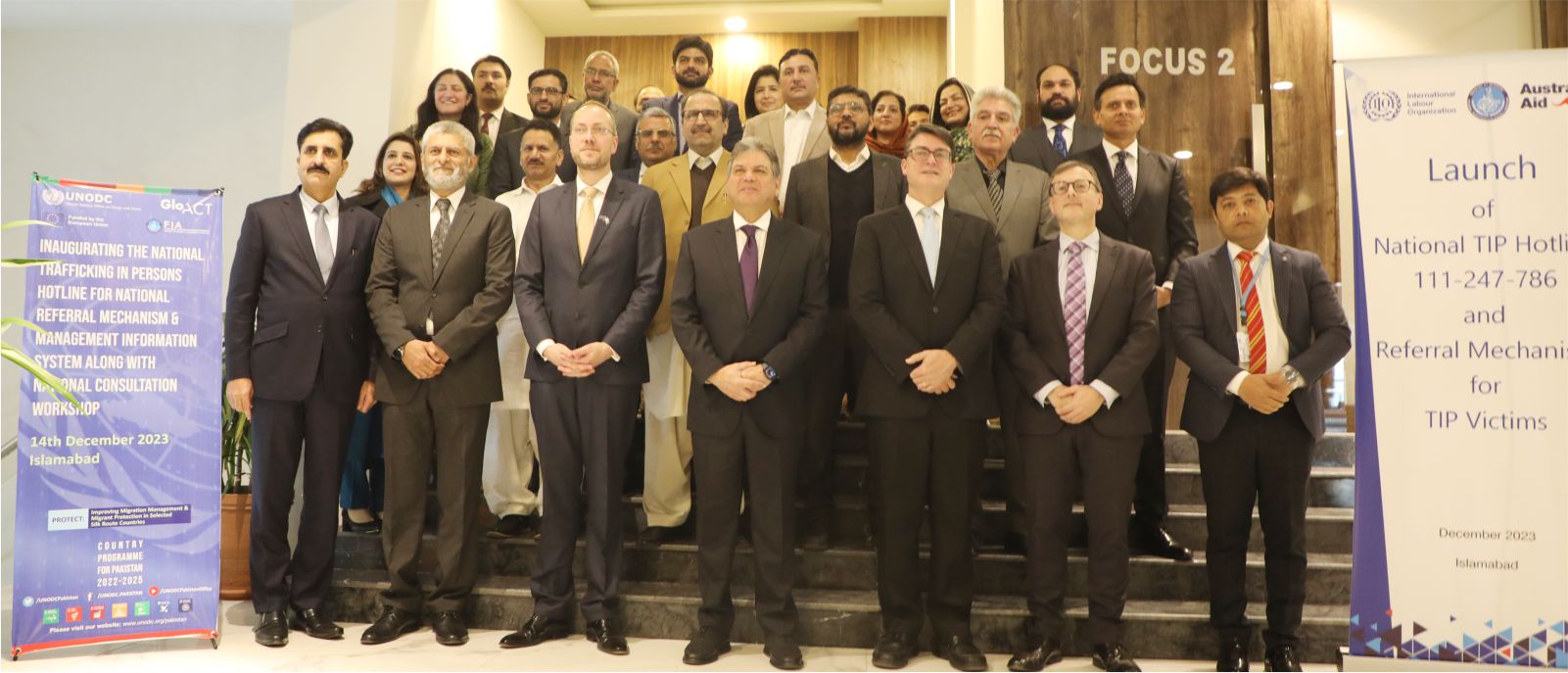
PROTECT: Improving Migration Management & Migrant Protection in Selected Silk Route Countries
The United Nations Office on Drugs and Crime (UNODC) is implementing the European Union-(EU) funded PROTECT initiative within the framework of GLO.ACT across Afghanistan, Iraq, Pakistan, and Tajikistan. This initiative also addresses challenges in the broader Central Asia region, including the Kyrgyz Republic, Kazakhstan, and Uzbekistan, with a primary focus on enhancing the effectiveness of responses to trafficking in persons (TIP) and smuggling of migrants (SOM), particularly in relation to criminal justice. Meanwhile, the International Centre for Migration Policy Development (ICMPD) is responsible for implementing the PROTECT initiative in Afghanistan (specifically through virtual MRC Afghanistan), Kazakhstan, the Kyrgyz Republic, Pakistan, Tajikistan, and Uzbekistan. Their primary objectives include improving gender-sensitive and rights-based migration governance at the national level and establishing Migrant Resource Centres (MRCs).
This project is funded by the European Union.
For more information, please contact:
Aimée Comrie (Ms.), Coordinator, GLO.ACT Human Trafficking and Migrant Smuggling Section, Organized Crime and Illicit Trafficking Branch UNODC, aimee.comrie@un.org
Golda Myra ROMA (Ms.), Senior Project Manager, ICMPD Silk Routes Region – Budapest Process, Golda.Roma@icmpd.org